
TCL Debuts World's First Nxtpaper Smartphones
TCL is bringing its Nxtpaper 2.0 technology to a couple of new smartphones. This colorized
2023-08-29 21:57

18 Best Alternative Wedding Dresses For The Unconventional Bride
For the bride-to-be who’s all about bucking tradition, the great news is that there are myriad wedding dress (and pant!) options that defy the whole tulle-and-lace (ahem, virginal) white look that we’re all so accustomed to in the western world. To be a nontraditional bride means that the wedding dress world becomes your oyster — and without any real boundaries or parameters on what you’re limited to wearing, it can be an overwhelming task to select a non-traditional wedding dress that’s right for you.
2023-05-16 05:29
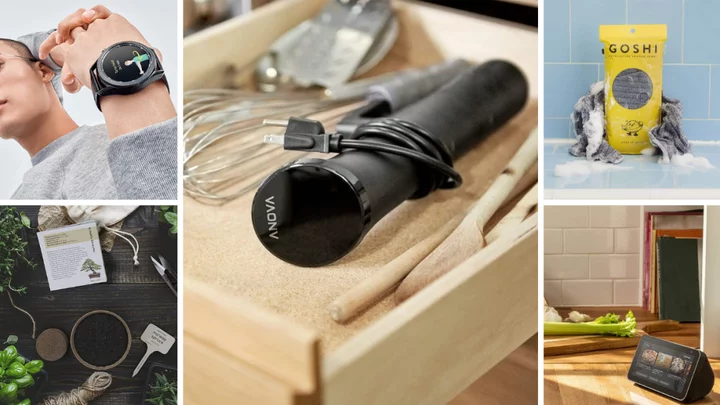
Best Father's Day gifts: Surprise Dad with something memorable
Dads often catch flak for corny jokes and being bad at texting, but father figures
2023-05-13 17:51

Thrawn arrives in live-action Star Wars. Is he too late to save 'Ahsoka'?
So Grand Admiral Thrawn of the Imperial Navy (Lars Mikkelsen) has finally arrived in Star
2023-09-21 04:52
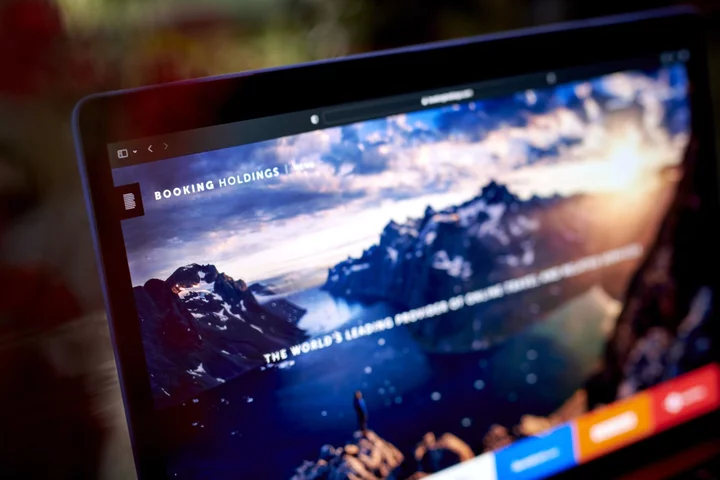
Booking’s €1.6 Billion Etraveli Deal Blocked by EU Watchdogs
Booking Holdings Inc.’s €1.6 billion ($1.7 billion) takeover of Sweden’s Etraveli Group was blocked by the European Union,
2023-09-25 17:15
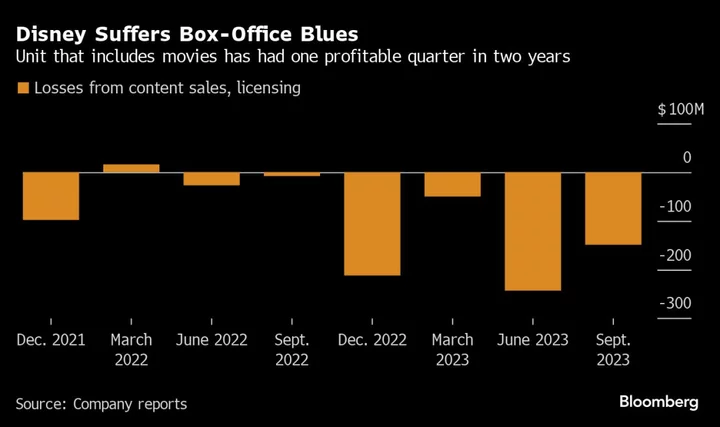
Disney’s Failing ‘Wish’ Shows Iger Also Has a Princess Problem
Walt Disney Co.’s Wish was supposed to celebrate the 100th anniversary of the company that invented animated princess
2023-11-29 18:55

Lewis Hamilton fears ‘high chance’ Max Verstappen will win 10 remaining races
Lewis Hamilton fears there is a “high chance” that Max Verstappen will win all 10 remaining races this season – and believes the Dutchman’s crushing dominance could last until 2026. Following a four-week summer shutdown, Formula One fires up this weekend at Verstappen’s home round in the Netherlands. Verstappen has won the last eight races and he will match Sebastian Vettel’s record of nine on the spin for Red Bull in 2013 if he triumphs in front of his orange-clad Dutch fans here on Sunday. Such is the dominance of Verstappen’s machine – and the two-time world champion’s supreme form – there is a feeling in the paddock, not only that Red Bull could become the first team to go through a campaign unbeaten, but that Verstappen could be victorious at each of the concluding 10 rounds. “There is a high chance that he (Verstappen) will win every race,” said Hamilton, 38. “He hasn’t made any mistakes and the team hasn’t made many this year. They might win everything. “But later on in the year, maybe we will get closer and we are hopeful we can challenge them at some point – whether that is this weekend, or who knows where? If there are any mistakes or mishaps, we will be right there to capitalise.” Verstappen has dominated since F1’s regulations were overhauled at the start of last season, with his comfortable victory at the concluding round before the break in Belgium his 10th from 12 so far and his 19th from his last 23 outings. He is a staggering 125 points clear in the standings as he closes in on a hat-trick of titles. Ferrari’s Charles Leclerc predicted on Thursday that it would be “very, very difficult” to catch Verstappen and Red Bull before the sport’s next major rule change in 2026. And Hamilton continued: “The fact is Red Bull are ahead and they have most likely started development on next year’s car a month before anybody else. It is very, very possible that Charles could be right. “We are working on the steep gradient to develop our car and close the gap. Whether or not we can, next year will be the proof.” I am hoping we are closer or in shooting range of a podium this weekend Lewis Hamilton Hamilton’s £40million-a-year contract expires at the end of the season and the Briton said on Thursday that were there was no update on his next deal, despite team principal Toto Wolff claiming – ahead of the Canadian Grand Prix on June 18 – that his star driver’s future would be resolved in “days rather than weeks”. Hamilton is fourth in the standings, 41 points adrift of Verstappen’s Red Bull team-mate Sergio Perez who occupies the runner-up spot, while Mercedes are second in the team standings, an eye-watering 256 points behind Red Bull, but 51 points clear of Ferrari. “It is a huge achievement to be second in the championship and it is something I feel has been overlooked,” said Hamilton. “We want to win but I am really proud of the team and the steps we have taken. “The guys think this track is not too different to Budapest and our car was good in Budapest. Even last year when the car was not great in Zandvoort, we were closer to the front. “George (Russell) finished second and at one point I was hunting down the lead so I am hoping we are closer or in shooting range of a podium this weekend. “We have the belief we will get there. And my goal is to try and keep that second place in the constructors’ championship and hunt down second in the drivers’ standings.” Read More Charity boss speaks out over ‘traumatic’ encounter with royal aide Ukraine war’s heaviest fight rages in east - follow live Haas announce Kevin Magnussen and Nico Hulkenberg staying for 2024 Lewis Hamilton gives blunt response to Felipe Massa’s legal action over 2008 title Charles Leclerc gives gloomy prediction on how quick Ferrari will catch Red Bull
2023-08-24 23:58

Half of Chicago residents have been exposed to gun violence: study
Half of the residents of Chicago have witnessed a shooting by the age of 40 with Blacks significantly more likely to have done so than whites, according...
2023-05-10 01:47

Pope in hospital for check-up
Pope Francis visited a Rome hospital for a medical check-up on Tuesday, a hospital source and Italian media said, just over two months after...
2023-06-06 20:29

What is the difference between an American XL bully and a pit bull? Rishi Sunak seeks to ban dog breed after recent attacks
The American XL bully and pit bull are widely-discussed and controversial dogs with differences that set them apart
2023-09-16 16:57
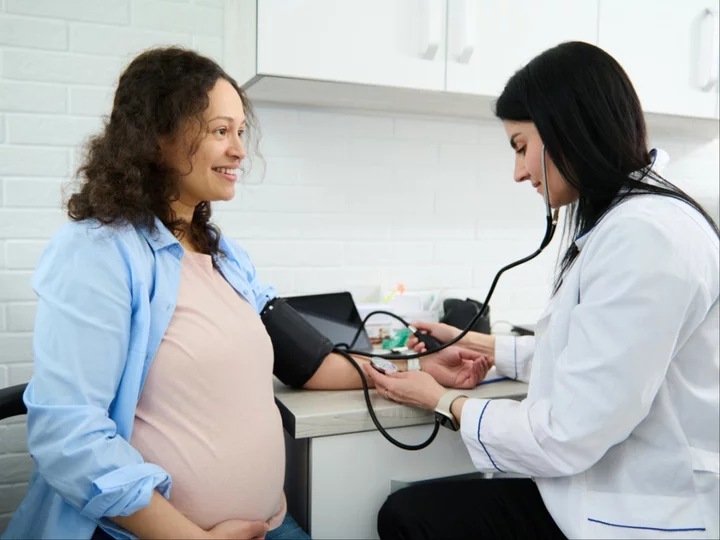
What is eclampsia and how rare is it?
Eclampsia is a rare complication of pre-eclampsia and can cause fits, seizures and strokes. The condition eclampsia describes the type of convulsion or fit – an involuntary contraction of the muscles – pregnant women can experience from week 20 of the pregnancy or immediately after the birth. What are the symptoms/ warning signs? Pre-eclampsia is a condition that affects some pregnant women, usually during the second half of the pregnancy (from 20 weeks) or soon after the baby is delivered. Early signs of pre-eclampsia include having high blood pressure (hypertension) and protein in your urine, according to the NHS. It’s difficult to notice the signs, but they can be picked up during routine antenatal appointments. Further symptoms of pre-eclampsia include a severe headache, vision problems, such as blurring or flashing, pain below the ribs, vomiting and sudden swelling of the face, hands or feet. How common are pre-eclampsia and eclampsia? Most cases of pre-eclampsia do not lead to serious problems or complications, but there is a risk that the mother will develop fits and seizures, called eclampsia, which can be life-threatening for the mother and baby. However, this is rare. According to the NHS, the earlier pre-eclampsia is diagnosed and monitored, the better the outlook for the mother and baby. Most women make a full recovery after having a fit, but they can put the mother and baby’s health at risk. According to the pregnancy charity Tommy’s. eclampsia is quite rare in the UK, with an estimated one case for every 4,000 pregnancies. What are the causes of pre-eclampsia? Though the exact cause of pre-eclampsia is not known, its thought to occur when there is a problem with the placenta – the organ that links the baby and mother’s blood supply. Who is affected by pre-eclampsia? A number of health conditions can increase your chances of developing pre-eclampsia, including having diabetes, high blood pressure or kidney disease before pregnancy. Having an autoimmune condition, such as lupus or antiphospholipid syndrome, or having high blood pressure or BMI, can also increase your chances of pre-eclampsia. A family history of the condition, being older than 40, or having more than 10 years since your last pregnancy can also increase your chances of pre-eclampsia. Expecting multiple babies, like twins or triplets, may also put a patient at risk. What are the treatments for pre-eclampsia? After being diagnosed with pre-eclampsia, a patient will be monitored closely by a specialist to see how severe the condition is. According to NHS guidance, the only way to cure pre-eclampsia is to deliver the baby, hence why monitoring the mother and baby is crucial until the child is delivered. Patients are often offered medicine to lower their blood pressure until the baby is born. Read More Tori Bowie: Pregnant US Olympic sprinter’s cause of death revealed Vegan family writes letter to neighbours requesting they close their windows when cooking meat Kelis addresses Bill Murray dating rumours for the first time How to take care of your mental health at festivals How to stop hay fever fast? Only one thing worked for me Jamie Foxx’s rep addresses conspiracy Covid vaccine left actor ‘paralyzed and blind’
2023-06-13 17:59

UK Prime Minister Sunak Sparks a Run on Socks in Hiroshima
UK Prime Minister Rishi Sunak was a hit in Japan after wearing socks for the local Hiroshima Carp
2023-05-23 19:25
You Might Like...

Microsoft Finally Realizes Nobody Wants Its Windows 11 Preinstalled Bloatware

Legal fund for man charged in New York subway death tops $1.6 mn
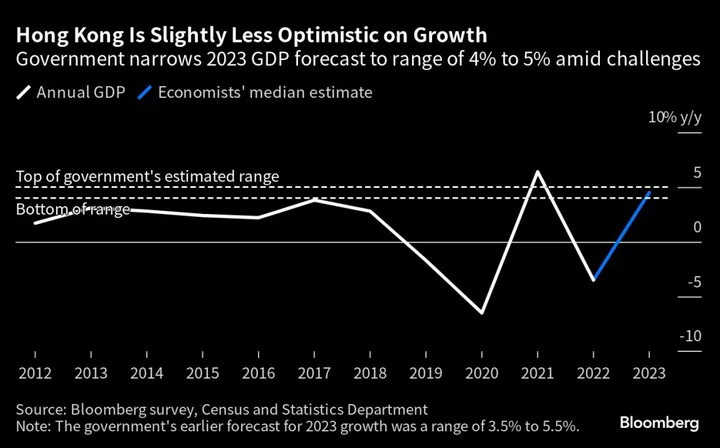
Hong Kong Narrows 2023 GDP Expectations as Recovery Loses Steam
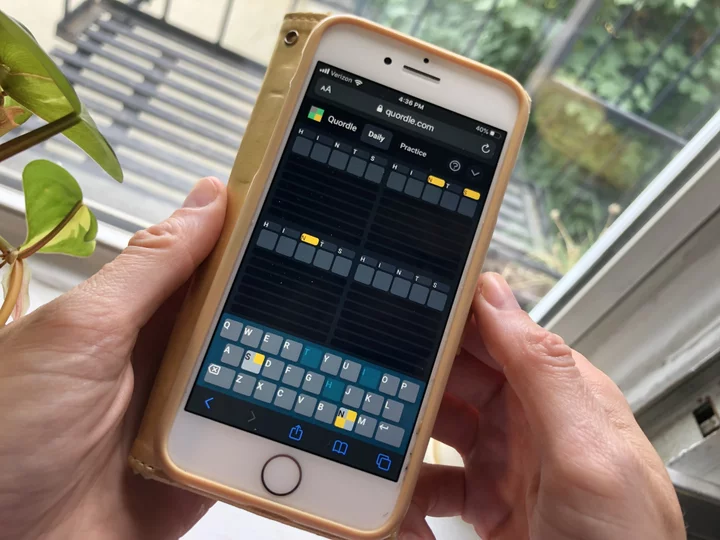
'Quordle' today: Here are the answers and hints for September 17, 2023

Disney's 'live-action' adaptations, ranked — and where to watch them

Metro Development Group unveils first residential farm amenity in Tampa Bay area

Jimmy Carter's wife Rosalynn enters hospice care

‘You can forget about that’ – Max Verstappen rules out another win in Singapore
